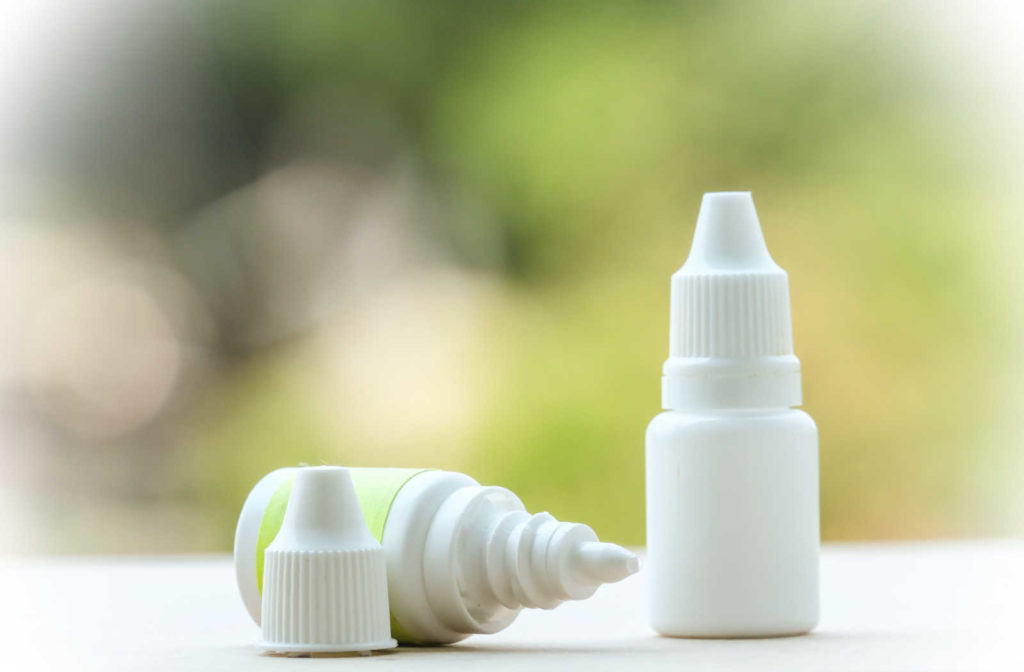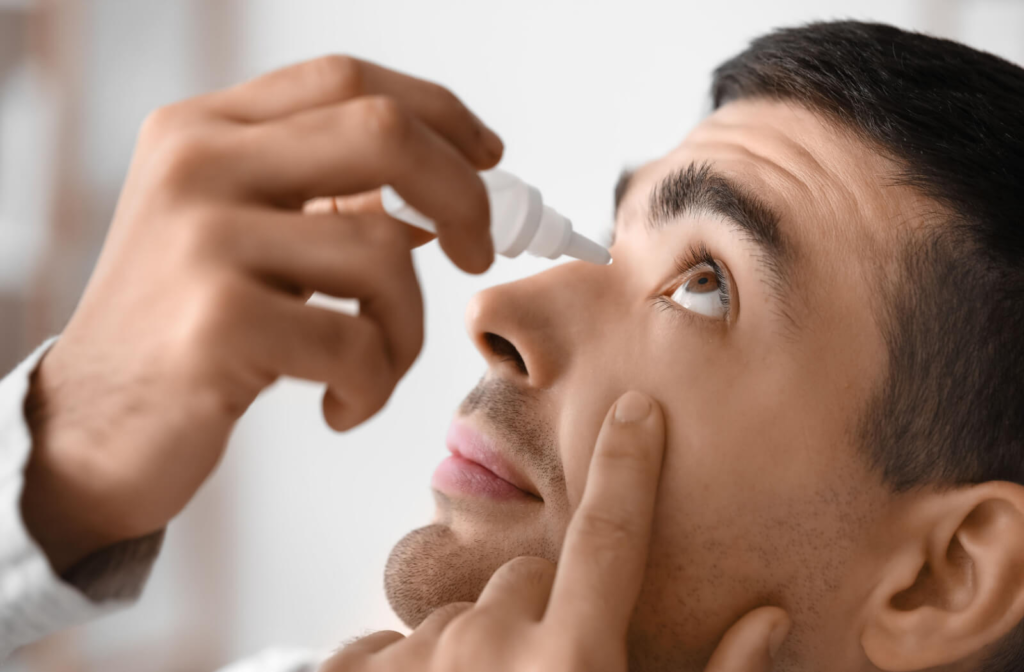It’s not abnormal for eye drops to cause temporary blurred vision and minor irritation immediately after they enter your eyes, but you shouldn’t feel pain. Eye drops can sting if your eyes react poorly to the preservatives in standard eye drops. However, if you’re experiencing initial stinging when using artificial tears, it may indicate that you’re not using them enough.
In cases where your eyes sting intensely or for an extended period, talk to your optometrist about switching to another type of eye drop. Following a comprehensive eye exam, your eye care team can suggest suitable eye drops for your specific eye concerns.
Why Does it Burn When I Put Eye Drops in My Eye?
When you experience a burning or stinging sensation after applying eye drops, it can be both surprising and uncomfortable. This reaction is often linked to factors like the ingredients in the drops and if the drops have been contaminated or are expired. Understanding the reasons behind this sensation can help you determine if it’s a normal response or something that requires attention from your eye doctor.
What Causes Eye Drops to Sting, Burn, or Hurt?
Feeling some initial stinging when using eye drops is normal, but you should watch for more severe reactions to indicate if something’s wrong. If you develop hives, swelling, or dizziness, you may be experiencing a rare allergic reaction.
Irritation is also common if your eye drops have a flaw, such as:
- Contamination where the tip of the bottle has come into contact with your eye or another surface
- Broken seals, which can cause germs and bacteria to infiltrate the bottle, leading to irritation and inflammation of your eyes
You should dispose of the eye drops if they become tainted, the seal is unattached, or if they’re expired. Using unsafe drops can introduce bacteria into your eye, leading to infections.

When Is Eye Drops Burning or Stinging a Red Flag?
Eye drops causing a burning or stinging sensation can be a red flag when the discomfort is severe, persistent, or accompanied by other symptoms like redness, swelling, or blurred vision. This may indicate an allergic reaction, an intolerance to certain ingredients, or an underlying eye condition such as an infection.
If these symptoms occur, it’s important to stop using the drops and consult with your eye doctor as soon as possible to avoid potential damage or complications.
Different Types of Eye Drops
Eye drops can help relieve the symptoms of several conditions, from dry eye to allergies and redness.
Artificial Tears
Lubricating eye drops, or artificial tears, are often recommended for relieving dry eye symptoms. Whether your dry eye is from digital eye strain, smoky or windy conditions, a side effect of medication, or a problem with your tear film, artificial tears imitate the elements of your natural tears to restore lubrication to your eyes.
Artificial tears can help relieve symptoms such as:
- Scratchiness
- Burning or stinging
- Blurry vision
- Red eyes
- Sensitivity to light
Eye drops without preservatives may be a good option if you’re managing chronic dry eye, but it’s a good idea to discuss eye drops with your eye care team before using them.
Allergy Drops
If you’re struggling with allergic reactions affecting your eyes, your optometrist may suggest artificial tears or allergy drops. Allergy eye drops can help you manage the irritating symptoms, including:
- Burning in the eyes
- Feeling like something’s in the eye
- Itchy eyes
- Bloodshot, red eyes
- Watery eyes
Depending on your allergy, your optometrist can recommend an antihistamine, anti-inflammatory, or decongestant drops.
Anti-Redness Drops
Allergies can cause eye redness, but you can also develop bloodshot eyes in other situations, including:
- When you’re tired
- When you have dry eyes
- In smoky environments
- From contact lens irritation
Anti-redness eye drops offer temporary aesthetic relief from a bloodshot appearance. Once the drop’s effects wear off, the redness can come back. It’s recommended that you only use anti-redness eye drops occasionally. Since anti-redness eye drops can make eyes appear more white, using them too often means you can risk masking a condition that needs attention.
If your redness is chronic, consult your optometrist for a further examination. Eye redness can indicate an infection, such as conjunctivitis or pink eye, or serious eye conditions, including uveitis or glaucoma.
Preservatives vs. Preservative-Free
Most eye drops include the preservative benzalkonium chloride (BAK) to help the eyedrops last longer and prevent bacteria growth once you open the bottle. However, overusing eye drops containing preservatives can actually irritate your eyes.
BAK can be an irritant for some people, so preservative-free options for consistent use can prevent further inflammation. If you’re using eye drops more than 4 times a day, switching to preservative-free drops can be gentler on your eyes.
Consult Your Optometrist Before Using Eye Drops
Your eyes are sensitive, and with so many eye drops available, some brands will suit your eyes better than others.
Before putting any products in your eyes, visit Total Vision Solana Beach and let our dedicated optometrists recommend eye drops to relieve your symptoms.



